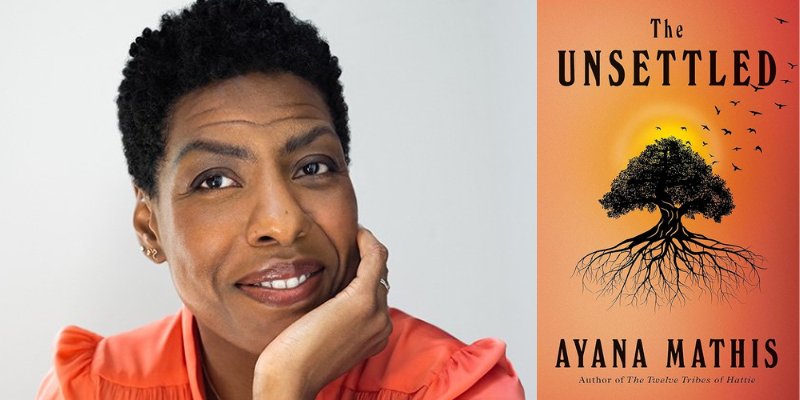
Ayana Mathis on Prioritizing the People on the Page
In Conversation with Mitzi Rapkin on the First Draft Podcast
First Draft: A Dialogue of Writing is a weekly show featuring in-depth interviews with fiction, nonfiction, essay writers, and poets, highlighting the voices of writers as they discuss their work, their craft, and the literary arts. Hosted by Mitzi Rapkin, First Draft celebrates creative writing and the individuals who are dedicated to bringing their carefully chosen words to print as well as the impact writers have on the world we live in.
In this episode, Mitzi talks to Ayana Mathis about her new novel, The Unsettled.
Subscribe and download the episode, wherever you get your podcasts!
From the episode:
Mitzi Rapkin: I always think one of the hardest things about telling a story is taking all these big minded philosophical ideas and social ideas that you want to interrogate and putting them into a story so that people aren’t going to feel like they’re being preached to or told things. So how do you think about that when you approach your fiction?
Ayana Mathis: It’s funny, so you write a book, and then the book comes into the world, and, in a certain way you knew a little bit what it was about, but then also you don’t really know what it was about until you finished writing it right? And then you learn more about what it’s about by talking to people like you and talking to readers. And, you know, that said, I think the big ideas like the thematics and all this big message stuff, you know, I know some of it while I’m writing, and then some of it is really kind of in the background. Because my priority can’t be the big message stuff, my priority has to be these people on the page, and what they do, and why they do it. And so, I think, obviously, the big message stuff is informing that, but as the thing is being created in some ways, I think that my concerns are primarily, character and story because this other stuff is sort of like a program opened in the background, right? So sometimes it certainly does inform how people move around the world of the fiction, but it can’t be the central thing, otherwise, I will have written a pamphlet or an essay, or worse written a thing that masquerades as fiction, but it’s actually these flat characters moving around to make a point. I never want to do that. So, I concentrate my efforts on character and story. And revision is always a help, right? Like you get a draft and you’re thinking, Oh, this is what this thing seems to be leading towards, or gesturing towards, or whatever it is. And so, you might add things or take things away or emphasize or deemphasize things. So revision, I think, is also a big place where some of those thematics become more sharply defined without sacrificing or compromising the integrity of the characters as facsimiles of human beings, not just being some sort of message carriers.
***
Ayana Mathis’s first novel, The Twelve Tribes of Hattie, was a New York Times Bestseller, second selection for Oprah’s Book Club 2.0, a 2013 New York Times Notable Book, NPR Best Book of 2013, and was long listed for the Dublin Literary Award and nominated for Hurston/Wright Foundation’s Legacy Award. Mathis’s nonfiction has been published in the The New York Times, The Atlantic, The Financial Times, RollingStone, Guernica and Glamour. She currently teaches at Hunter College’s MFA Program. Her new novel is The Unsettled.
First Draft: A Dialogue on Writing
First Draft: A Dialogue on Writing is a literary podcast produced and hosted by Mitzi Rapkin. Each episode features an in-depth interview with a fiction, non-fiction, essay, or poetry writer. The show is equal parts investigation into the craft of writing and conversation about the topics of an author’s work.



















